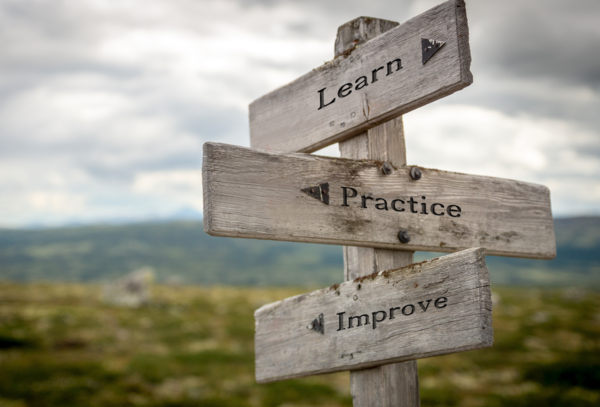What if I told you that mastering new skills could be not only straightforward and achievable but also exciting?
Read on to learn the worst kept secrets behind achieving skill mastery, self-discovery, and growth.
I am often asked for advice on how to nurture new talents, enhance existing abilities, or overcome professional obstacles. My own coaching journey has shown me that success consistently happens through the application The Dynamic Trio - Deliberate Practice, Exposure Therapy, and Feedback Loops. I will explain each of these in much more detail in forthcoming articles.
As a single example throughout this article, I will summarise each of these three approaches I introduced to an engineer who wanted to improve her public speaking ability.
1. Deliberate Practice: An expert process for expertise
Deliberate practice is not just any practice—it’s the kind of focused, structured, and purposeful effort that pushes the boundaries of your abilities. It’s about breaking down a skill into its constituent parts, identifying weaknesses, setting specific goals, and relentlessly working to improve those areas. Deliberate practice is the secret sauce that separates the amateurs from the champions.
Example: Public Speaking *Start by dissecting public speaking into its elements: voice modulation, body language, content structure.
*Set a single and specific element, like mastering the use of your body language.
*Practice as frequently as you can, rehearsing your speech, recording it, and analysing your performance. Tackle only one element at a time until you feel like a pro.
Deliberate practice is like sculpting your expertise, one refined detail at a time. The more you immerse yourself, the quicker you’ll see incredible progress!
2. Exposure Therapy - Getting comfortable with the uncomfortable:
Exposure therapy is a therapeutic approach originally designed to help individuals overcome phobias and anxieties. However, it can also be applied to personal development. It involves systematically exposing yourself to the source of your fear or challenge in controlled, safe environments that you choose. In doing so, exposure therapy gradually reshapes your perception, reprograms your response, and empowers you to tackle your skill development head-on. Fear is often the biggest hurdle in skill development. Exposure therapy is your fearless companion, helping you confront your anxieties gradually and gain confidence.
Example: Overcoming the fear of public speaking *Start by speaking in front of a mirror, then to a trusted friend or family member.
*Then start presenting to small groups of friends or close colleagues.
*Join a supportive group or class where you can practice in a safe environment.
*Gradually increase the size of your audience until speaking in public feels like second nature. It is important to ensure you always feel safe but gradually increasing the discomfort.
Exposure therapy is your ticket to banishing stage fright. With each step you decide to take, you’ll build resilience and unlock your hidden potential.
3. Feedback Loops - The essential ingredient:
Behind every great skill lies one essential ingredient—feedback loops. It is data and the benchmark, connecting you to a constant flow of information to refine your abilities. Feedback loops are not a one-off. It is a consistent routine of experimentation, assessment, and reflection. Feedback loops are your compass on the journey to mastery. They provide invaluable insights, helping you refine your skills and accelerate your progress.
Example: Public Speaking *For an upcoming presentation, choose one specific skill you want to improve (See deliberate practice above).
*Decide what you will do differently at this presentation regarding this skill.
*Ask a trusted friend or colleague to observe your presentation, and to provide you feedback afterward about the specific skill you are trying to improve.
*Get the feedback, reflect, and plan how you will improve that skill further at your next presentation.
Feedback loops transform your skill development into a dynamic, ever-evolving process. They keep you motivated and constantly improving.
But Why Should You Be Excited About These Techniques?
Because they make the impossible feel achievable! Deliberate practice, exposure therapy, and feedback loops create a simple plan for continuous skill development. They take the mystique out of the learning process and empower you to completely manage the process yourself.
Watch out for my forthcoming articles where I define and describe each of these three techniques in further detail and how I used the Trio to help my Expertship clients develop their skills and talents.




